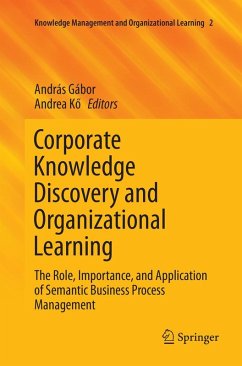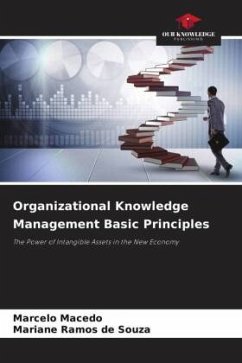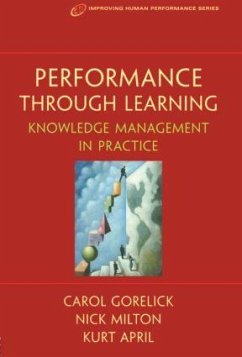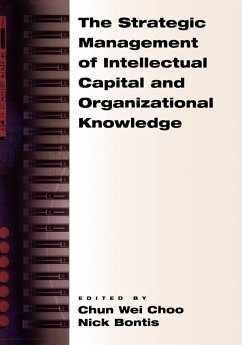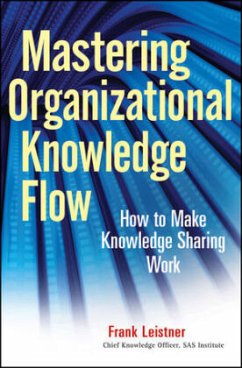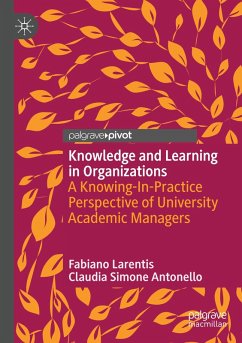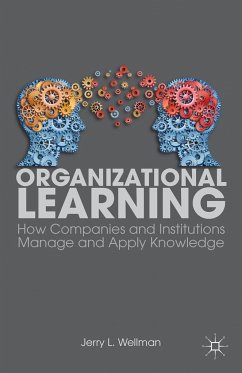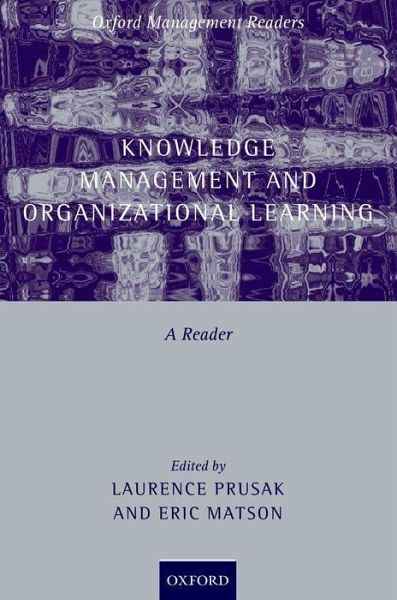
Knowledge Management and Organizational Learning
A Reader
Ed. by Prusak, Laurence; Matson, Eric

PAYBACK Punkte
113 °P sammeln!
Over the past decade, knowledge and learning have emerged as the keys to economic success and as a focus for thinking about organizational effectiveness and innovation. An overwhelming majority of large organizations now engage in a wide range of knowledge and learning activities and nearly all have programs and personnel explicitly dedicated to these tasks.The volume is targeted at those new to knowledge and learning, and is filled with practical examples and focuses on the most critical issues, featuring seminal contributions from leading authorities including:Thomas Davenport,Dorothy Leonar...
Over the past decade, knowledge and learning have emerged as the keys to economic success and as a focus for thinking about organizational effectiveness and innovation. An overwhelming majority of large organizations now engage in a wide range of knowledge and learning activities and nearly all have programs and personnel explicitly dedicated to these tasks.
The volume is targeted at those new to knowledge and learning, and is filled with practical examples and focuses on the most critical issues, featuring seminal contributions from leading authorities including:
Thomas Davenport,
Dorothy Leonard,
John Seely Brown,
Sidney Winter,
W. Chan Kim,
Peter Druckard.
The book is organized around the three key steps in managing knowledge: development, retention, and transfer. These sections are preceded by a section creating the strategic context for knowledge and followed by a section on the social dimensions that are often overlooked. Finally, the book looks to the future of knowledge and learning.
This Reader is an accessible way for executives and students taking advanced Management Studies and executive courses to learn from the latest examples on this topic.
The volume is targeted at those new to knowledge and learning, and is filled with practical examples and focuses on the most critical issues, featuring seminal contributions from leading authorities including:
Thomas Davenport,
Dorothy Leonard,
John Seely Brown,
Sidney Winter,
W. Chan Kim,
Peter Druckard.
The book is organized around the three key steps in managing knowledge: development, retention, and transfer. These sections are preceded by a section creating the strategic context for knowledge and followed by a section on the social dimensions that are often overlooked. Finally, the book looks to the future of knowledge and learning.
This Reader is an accessible way for executives and students taking advanced Management Studies and executive courses to learn from the latest examples on this topic.






